by Joan Mitchell, CSJ
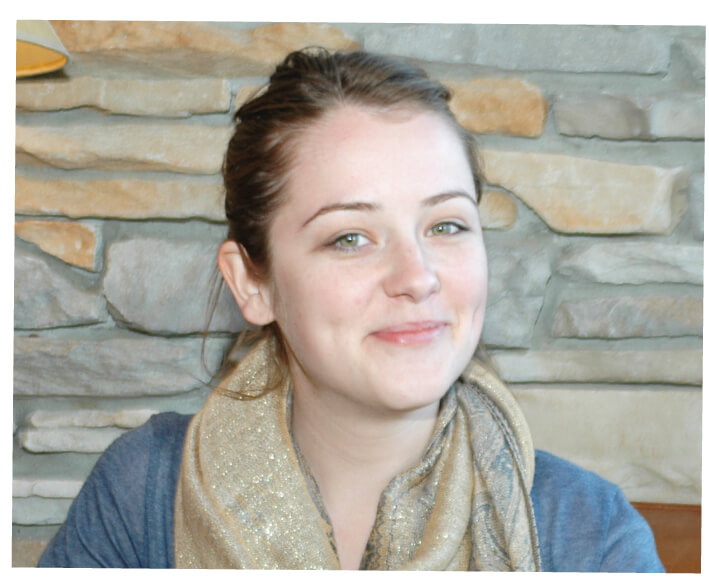
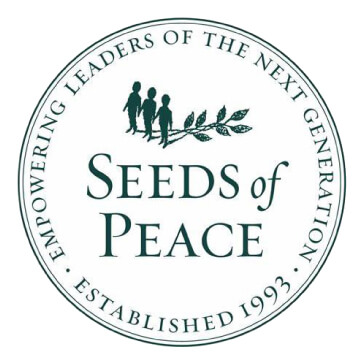
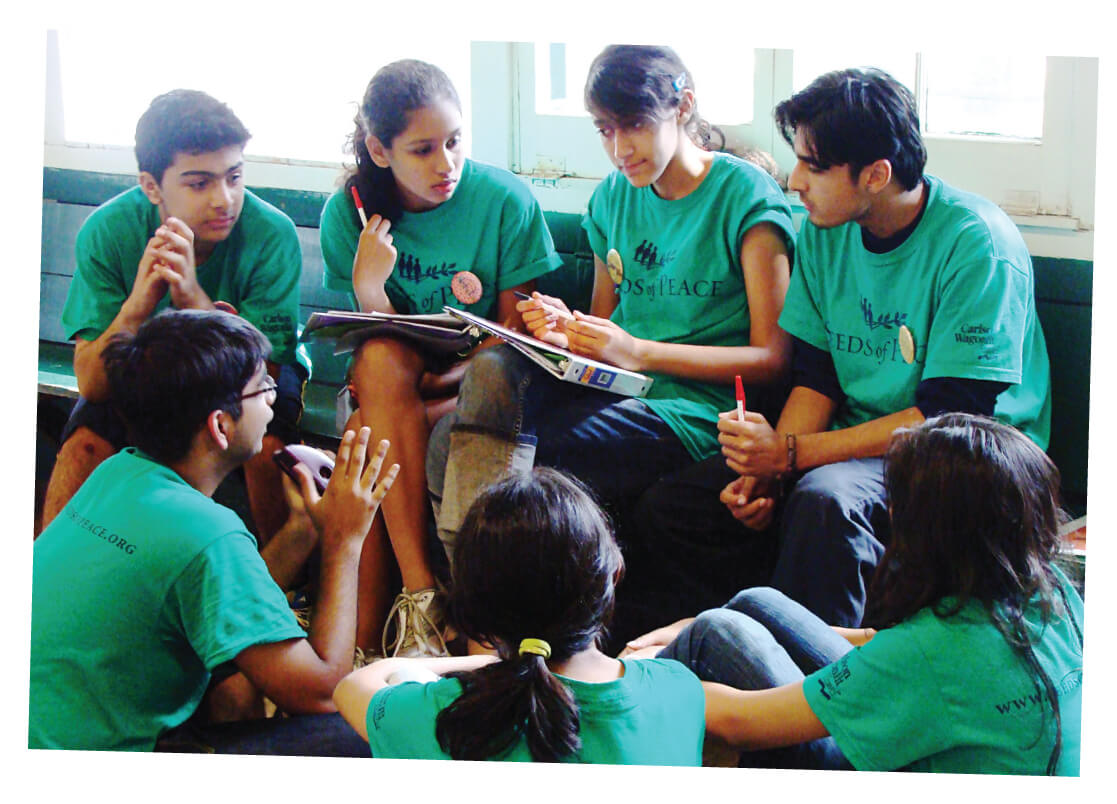
Evgenia feared not only for herself and her family but for the lives of friends who live in the West Bank, the landlocked Palestinian territory within Israel. Evgenia is a Seed, a young person who has participated in Seeds of Peace Camp, a month-long experience for teens who grow up in countries in conflict. She no longer believes in taking sides.
Evgenia had arrived home from boarding school only the day before the bombing. “In this war situation I did feel a desire to identify with my country,” she says. “But I knew not all the Palestinians are our enemies and hate us. I worried about my friends who live in the West Bank at the same time my family was feeling animosity toward them. I don’t believe in choosing a side. Once you do you are not helping.”
A Seed is one of 7,000 young people who have participated in Seeds of Peace since its founder John Wallach started it in 1993 (seedsofpeace.org). Delegations of teens come to camp from countries in conflict, such as Afghanistan, Egypt, India, Israel, Jordan, Pakistan, and Palestine. Seeds participate in online forums and stay in touch with friends by cell phone in peace and war.
“Zeina lives a couple hundred meters from my house in Jerusalem,” says Israeli Ariel, 15, motioning toward the girl beside him. “But at home we would never meet because she is Palestinian.” At camp they have become friends.
On the playing fields in the Maine woods Palestinians and Israelis play baseball, soccer, field hockey, basketball, and tennis together. Teens from “the other side” swim, race canoes, and try water skiing together. They sing, bead, work on computers, and make friends across borders.
John Wallach started Seeds of Peace after the first bombing of the World Trade Center. He aimed to bring Israeli and Arab youth together long enough to break their stereotypes of one another and reach across the boundaries that separate them.
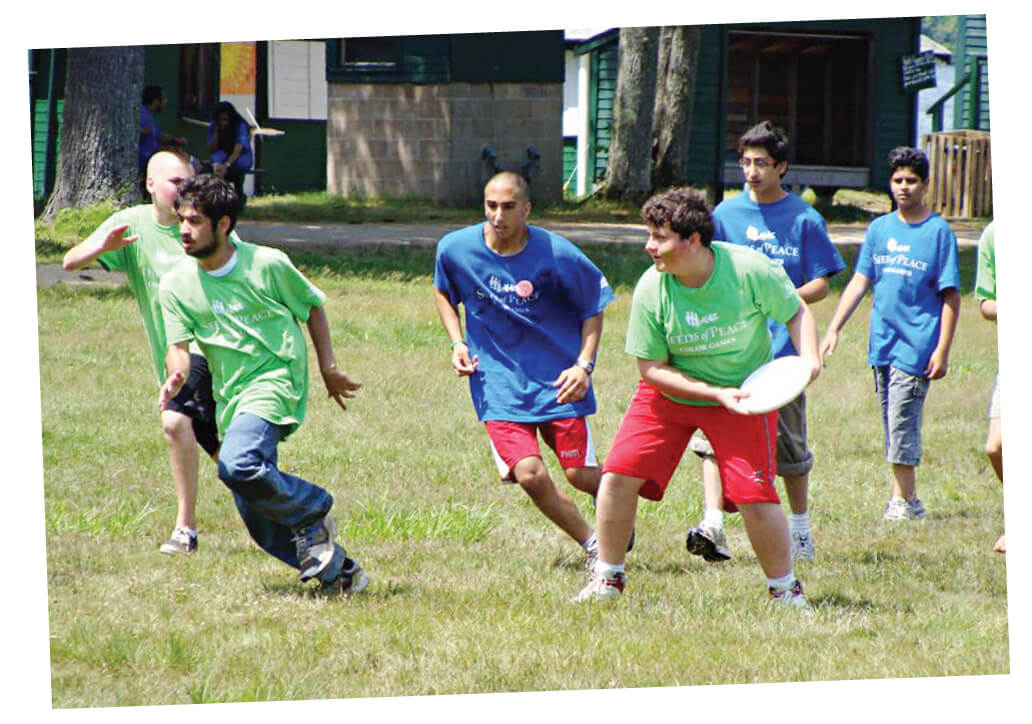
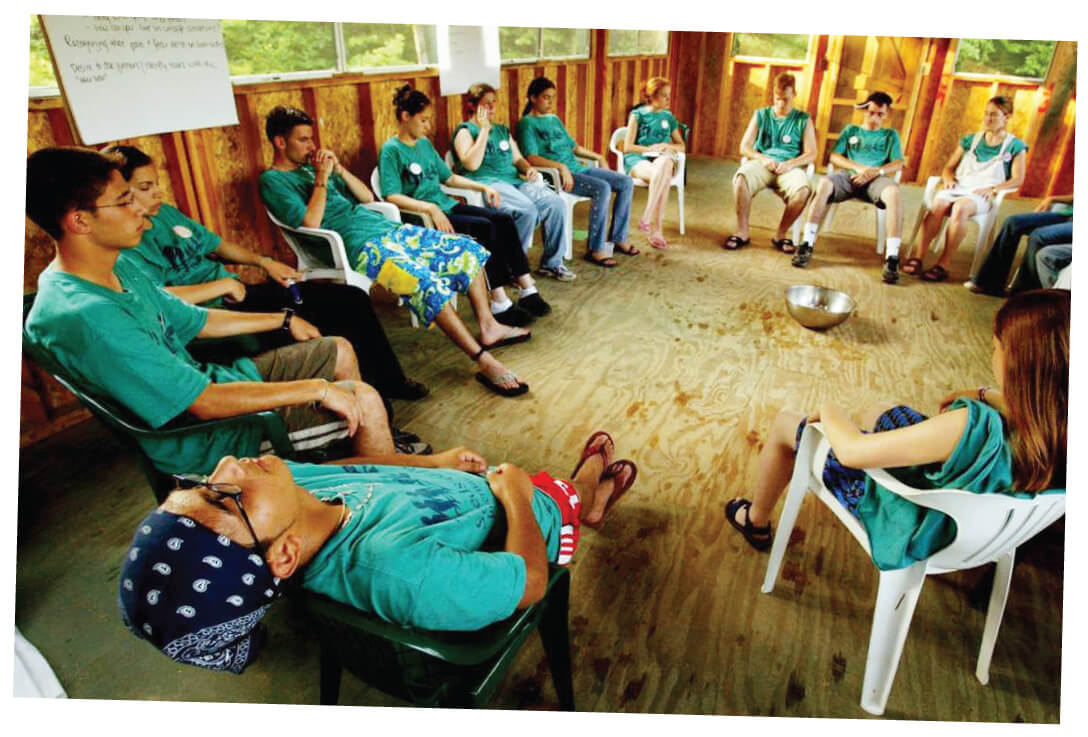
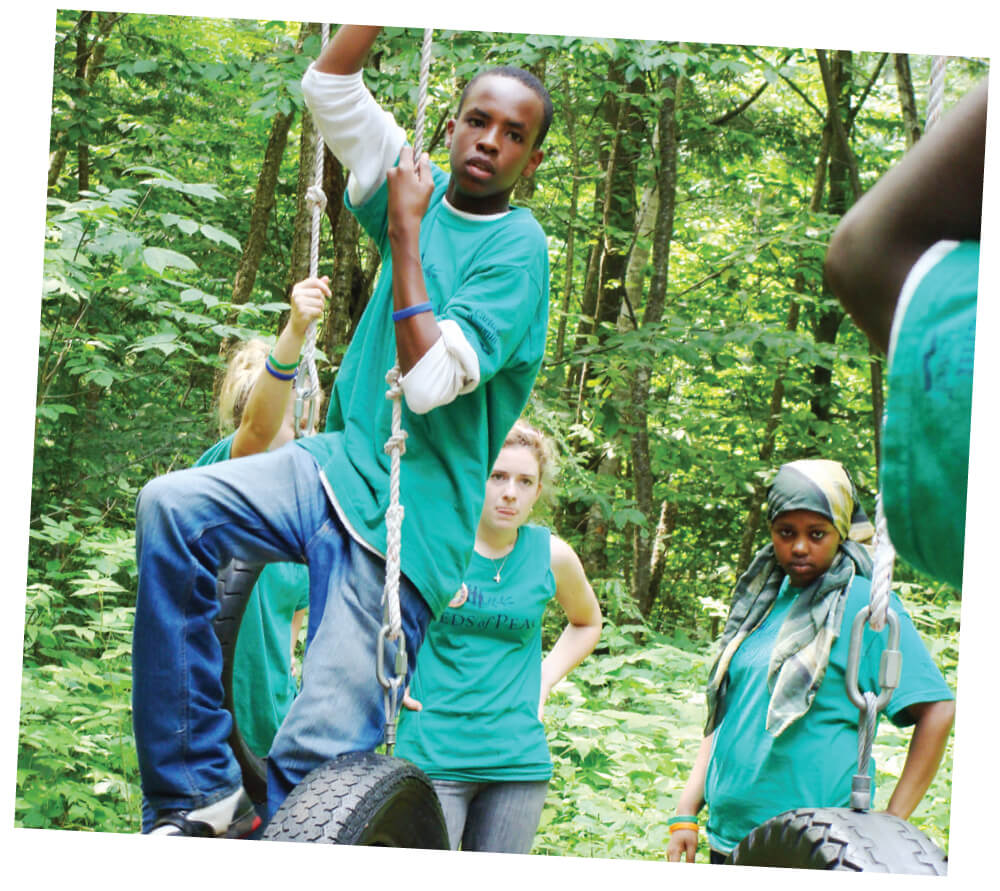
Daily Dialogue Sessions, start in camp with trained facilitators running these discussions. Teens learn what their opinions mean in the context of others’ lives. No one has to change his or her mind but they do have to learn to listen to one another’s stories rather than debate facts, history, or policies.
Evgenia went to Seeds of Peace Camp in Maine in 2003, when she was 15. Afterwards she began attending a United World College in Wales, a boarding school with students of 75 nationalities.
“The second Lebanon war in 2006 was the only time I experienced the war physically,” says Evgenia. “But the fear and stress are always there. It’s possible to drive along the separation wall that surrounds the West Bank and be oblivious to the fact that another country is there.”
At Seeds of Peace Evgenia learned not to let her identity as an Israeli speak for her. “If I hadn’t met people at a very young age that listened to the same ridiculous pop music as I did, I wouldn’t know how much we have in common. All I saw as a child growing up on TV were labels. Humans have this natural tendency to make sense of things by putting them in strict categories.”
The Grinblo family immigrated from Siberia when Evgenia was seven. Her father is Jewish, her mother’s family Christian. Because Jewish people trace their ancestry through their mothers, Evgenia is not regarded as Jewish in Israel. “At home I’m the Russian girl,” she explains. “In the U.S. I’m the Jewish girl.” She has grown up culturally Middle Eastern.
Now as a college junior, Evgenia recognizes Seeds of Peace changed her life. Camp activities aim to help teens find all they have in common. The month ends in three days of Color Games. “We forget about who is Israeli and who is Palestinian and work together as the Green Team or Blue Team to compete,” says Evgenia.
The high ropes course was most life changing for Evgenia. “Each of us goes up with someone from ‘the other side,’” she remembers. “One gets blindfolded and the other has to help the person through this very scary course. When I came back to the ground, I literally saw with fresh eyes. I had to trust and rely on the other person for my safety and well being. Once that person was there for me, I realized my opinions of those on the other side were not based in reality.
“Since Seeds of Peace, I’m a better listener. I follow my natural inclination to dig deeper and understand people’s motivation, the road they walked on to get to where they are. Why are they saying what they are saying? Why they do what they do? What feelings do they have about me that are influencing the way they see things?”
Dialogue sessions make the difference for many Seeds. “Everyone has hard feelings for the other side. No one wants to listen,” says Ahmed, a Seed from Gaza. “But we learned how to really listen and to understand, and at some point I started to see the good in people from the other side—I realized they are just humans.
“I found the best moments are when you see the rest of your group listening to your stories, paying attention to every word you say about yourself, your family, your life. You then feel safe among people who care about you.”
Ophir from Jerusalem remembers shouting during dialogues, even yelling, out of anger and despair. “I realized that both sides have two different versions of history and facts,” he says. “When both sides try to convince the other that they are on the right side, the other side rejects the attempt with anger. I realized that if you want to learn and really know what is going on, you must listen to personal stories.”
“It was difficult hearing people who were against my thoughts, against my beliefs, against what I think is right,” says Yasser from Ramallah in the West Bank. He discovered that a Seed named Roni and he were really on the same side: the side of peace.
“There was a lot of yelling and screaming between us at first,” says Yasser, until he followed a facilitator’s advice to speak with one mouth and hear with two ears. “Roni and I started talking outside of dialogue. We apologized for hurting each other’s feelings. We started having fun in Group Challenge, and over time, developed a positive friendship.”
“Through dialogue, I learned how important it is to listen, and not just talk,” says Ibrahim from Bethlehem. “When I first met Israeli Seeds, I thought they had come to talk about us. I thought they hated us. I discovered in dialogue that they came to talk to us. If we listen to them, they will listen to us.”
“It’s a big responsibility to be a Seed,” says Evgenia. “I can’t erase the experience. I understand that my choices as an individual really do matter. It’s a weight you have to learn how to carry.”
When she participated in the Seeds of Peace internal forum, Evgenia talked with youth freshly out of camp and recognized her thinking had grown and blossomed. “Camp is just the beginning of the story. Both sides want the same things—safe, healthy, prosperous, long lives.”
